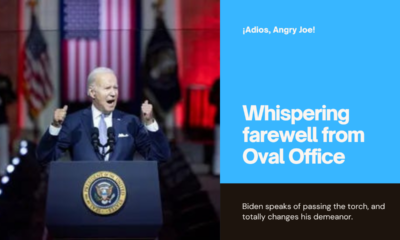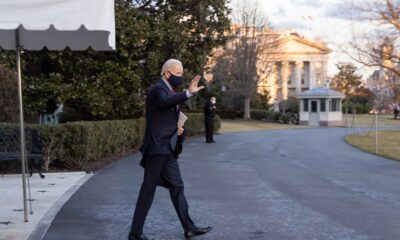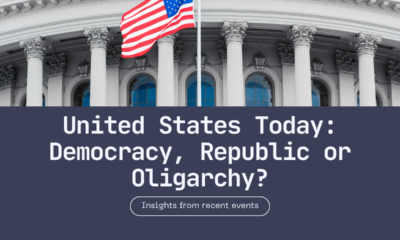Constitution
Health care reform bill case: cert denied

The two New Jersey men who sued over the health care reform bill vow to re-argue their case after the Supreme Court denied certiorari.
Latest Supreme Court action
The Supreme Court’s action on the New Jersey health care reform bill case (Purpura v. Sebelius, Docket No. 11-7275) is shown here. The Court assigned a docket number to the case and gave the government thirty days to respond. On December 9, 2011, the government waived response. On December 15, 2011, the Court distributed briefs on the case to all nine Justices and put the case on the agenda for its January 6, 2012 administrative conference.
On January 9 (Monday), the Supreme Court left a terse notice on its docket: “Petition DENIED.” The docket gives no reason for the denial, and no tally of votes for or against granting review.
The Supreme Court often “lets stand without comment” decisions that petitioners bring to it. Petitioners can always re-argue their petitions. They rarely do so more than once, unless they are rebutting something specific that the Court has said. In this case, the Court said nothing.
Reaction
Nick Purpura, the lead plaintiff, first learned of the denial when CNAV reached him. He reacted in outrage.
How can this court willfully ignore nineteen separate violations of the Constitution and applicable statutes?
He then vowed to re-argue his case and to list the nineteen violations all over again. He suggested three reasons why the Supreme Court might have acted as it did:
- They did not want to judge whether Barack H. Obama is, or is not, a natural-born citizen. Many observers have suggested that this is a non-issue. If it were, then the Court could easily say so.
- They did not want to judge whether the Senate acted improperly in passing the entire health care reform bill as an “amendment in form of substitute” of an unrelated House-passed bill, nor whether the House of Representatives acted improperly by accepting the substitution as valid. Thus the leaders of the House seemed to pretend that the health care reform bill originated in their chamber when it did not.
- They want to protect two Justices, and several other federal judges, who would lose their jobs if Purpura and his fellow plaintiffs prevailed.
Donald R. Laster Jr, the second named plaintiff, gave CNAV this response:
The Supreme Court’s refusal to hear the case makes those who voted against hearing the case conspirators in the continuing attacks on the US Constitution, as well as the freedoms and rights of the citizens. In 2000 the Supreme Court had the courage to stop Al Gore’s attempt to steal the election by jury-rigging a 5th or 6th recount by choosing only Democratic leaning precincts. (Remember, every recount showed George Bush won). The Supreme Court told Al Gore – follow the law as written – a full recount or none. Here we showed how the lower Courts ignored the law and Constitution, and how the bill violated the Constitution. So once again, our Courts are failing to uphold the Constitution and follow the rule of law. We continue down to the path to dictatorship as Hugo Chavez has imposed [it] in Venezuela. The 2012 elections are a water-shed event; we either lose more of our rights and freedoms or we the People stand up and take back our country from those who would make us serf and servant. Do we go back to the rule of law or allow rule by the whim as monarchs and elites.
Other pending health care reform bill cases
The Supreme Court will hear oral argument in another significant health care reform bill case this March. The Court scheduled five and a half hours, or a full working Court day, to hear argument in Florida ex rel. Bondi et al. v. HHS et al. Twenty-six States are among the plaintiffs in that case. The chief issue that the Court will decide is whether the Congress exceeded its authority under the Commerce Clause when it forced every citizen or lawful resident to buy health insurance.
Purpura and Laster are not satisfied. “Regulating interstate commerce” is one of the nineteen violations they cite. But they regard the other eighteen as far more important and even more decisive. In addition to the two mentioned above, they include:
- Subjecting patients’ medical records to search and seizure without a warrant.
- Raising and supporting an armed first-responder force for a four-year term.
- Deploying said force for possible combat on American soil, in violation of the Posse Comitatus Act.
- Anti-trust violations.
- Interfering with the States’ reserved powers under the Tenth Amendment.
They also hold that Justices Elena Kagan and Sonia Sotomayor should never have participated in any administrative conference. They complain that Obama had no authority to sign the bill because he was and is not the President. By that same reasoning, he had no authority to appoint Kagan or Sotomayor, either.
Related:
- Recusal issues
- Recusal motion 2
- Two cases
- Press release
- Challenge details
- Supreme challenge
- Privacy violations
- Setback
- Opposition brief
- Revised motion
- Legal confusion
- Frustration
- More motions
- Recusal motion
- Default motion
- Appeal skirmish
- Commerce, health care, and distortion
- Plaintiffs seek injunction
- Appeal delayed
- Plaintiffs have standing after all
- DOJ wants more time on HCR appeal
- Another appeal
- Hazardous to your health
- Court dismissal
[amazon_carousel widget_type=”ASINList” width=”500″ height=”250″ title=”” market_place=”US” shuffle_products=”True” show_border=”False” asin=”B00375LOEG, 0451947673, 0800733940, 0062073303, 1595230734, 1936218003, 0981559662, 1935071874, 1932172378″ /]
Terry A. Hurlbut has been a student of politics, philosophy, and science for more than 35 years. He is a graduate of Yale College and has served as a physician-level laboratory administrator in a 250-bed community hospital. He also is a serious student of the Bible, is conversant in its two primary original languages, and has followed the creation-science movement closely since 1993.
-

 Executive4 days ago
Executive4 days agoSecret Service chief gets no solace
-

 Executive3 days ago
Executive3 days agoWaste of the Day: Louisville Taxpayers Pay Nearly $600,000 For Empty Building’s Maintenance, Security
-

 Guest Columns5 days ago
Guest Columns5 days agoFear Itself: Democrats’ Favorite Strategy Caused Their Current Chaos
-

 Executive3 days ago
Executive3 days agoWhere is Joe Biden – or Jill?
-

 Executive2 days ago
Executive2 days agoWaste of the Day: Throwback Thursday: Cities Used Crime Prevention Funds on Soccer Games, Paper Shredding
-

 Executive2 days ago
Executive2 days agoFacile and politically motivated suggestions
-

 Civilization5 days ago
Civilization5 days agoBuild Iron Dome in the United States To Prepare for Israel’s Worst Day
-

 Executive2 days ago
Executive2 days agoBiden makes farewell whisper
















[…] E. Purpura, lead plaintiff in Purpura v. Sebelius, told CNAV that this is the strongest Obama eligibility argument available. […]
[…] Certiorari denied […]